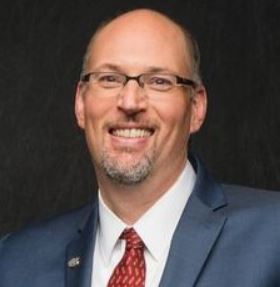-
.png?sfvrsn=628e69ba_0)
Mind the Brain: Anxiety and Cancer During COVID-19
Jul 7, 2020Fear and anxiety keep us safe from harm – they prevent us from running into the street when a car comes racing toward us, and motivate us to prepare well for a presentation we’re nervous to give. But fear and anxiety can also spiral into uncontrollable worry, endless internet searching, and avoiding valued life activities that connect us with the people we love. How do we harness the positive features of fear and anxiety without becoming trapped by their risks?Full story -
.png?sfvrsn=628e69ba_0)
Mind the Brain: Reversing the Cycle of Depression Through Action
Jun 30, 2020We all know we live in challenging and uncertain times. The Renée Crown Wellness Institute at the University of Colorado Boulder was established with a commitment to the vision of a world in which every young person thrives, supported by the caring relationships and inner resources required for a lifetime of wellness. The last few months have challenged this vision in profound ways. The pandemics of the coronavirus and systemic racism call upon us with urgency to attend to our individual and collective mental health and wellness.Full story -
.png?sfvrsn=628e69ba_0)
Mind the Brain: Child and Adolescent Anxiety in the Time of COVID-19
Jun 23, 2020Anxiety helps us stay vigilant for potential future threats, and the COVID-19 pandemic brings with it significant uncertainty. We certainly expected a spike in reports of anxiety symptoms like worries, fear, irritability, and low mood in the children and adolescents we care for in the clinic and our homes.Full story -
.png?sfvrsn=628e69ba_0)
Mind the Brain: Times are Strange, but Uncertainty is Nothing New: Managing COVID-19 When You or a Loved One Has OCD
Jun 16, 2020These are uncertain times, and uncertainty is familiar territory for people living with obsessive-compulsive disorder (OCD). OCD sufferers have more difficulty tolerating uncertainty and are more likely to feel uncertain in situations where others would not (1, 2). Compulsions are driven by the quest for certainty.Full story -
.png?sfvrsn=628e69ba_0)
Mind the Brain: Feast or Famine - Navigating Food and Body Image During the Pandemic
Jun 9, 2020Have you seen these sorts of social media posts? Society has framed the quarantine during the COVID-19 pandemic as a recipe for disaster; being stuck at home, close to snacks with nothing to do but sit around. Weight loss, working out and dieting are being pushed as necessities to help you come out of this pandemic feeling refreshed and renewed. Ideas like these ignore the fact that this is not a vacation, and that while we may have extra time on our hands, it does not mean that we have the bandwidth or the finances to cook, eat healthy or work out regularly. For many of us, our routines—and the feelings of security that go with them—have disappeared, and this can cause a disruption in eating patterns and self-image.Full story -

Controlling the Chaos: Expert Offers Tips on Shielding Our Minds
Jun 4, 2020“There’s already a kindling that’s saturated with gasoline, and it doesn’t take much to set it off,” Berkowitz said, alluding to the cloud of COVID-19 followed by the uprising against police brutality after the recent death of George Floyd.Full story -

Extra Choline May Help Pregnant Women Decrease Negative Effects of COVID-19 on Their Newborns
Jun 4, 2020Pregnant women who take extra choline supplements may mitigate the negative impact that viral respiratory infections, including COVID-19, can have on their babies, according to a new study from researchers in the Departments of Psychiatry and Obstetrics and Gynecology at the University of Colorado Anschutz Medical Campus.Full story -

Colorado health experts detail COVID-19 impact on mental health, young people
Jun 4, 2020Children are experiencing more stress as well during this time, said Jason Williams, director of operations of the Pediatric Mental Health Institute at Children’s Hospital Colorado. He’s also a professor of psychiatry at the University of Colorado School of Medicine. Channel 7, May 14, 2020Full story -
.png?sfvrsn=628e69ba_0)
Mind the Brain: Motherhood and Mental Health During COVID-19
May 26, 2020Late last year, a collaboration of organizations focused on maternal health made the declaration that 2020 would be the “Year of the Mother.” While this announcement was already timely in many ways, it is unlikely that anyone anticipated what was to come in 2020, and how a global pandemic would impact pregnant and postpartum women.Full story -
.png?sfvrsn=628e69ba_0)
Mind the Brain: Suicide Risk and the Global Pandemic
May 19, 2020The COVID-19 pandemic is an unusual kind of natural disaster, but like other natural disasters, we are anticipating a high number of casualties. Unlike earthquakes and floods, these casualties will accumulate more slowly and, as a result, will be less visible. Building codes, evacuation plans and other disaster preparedness efforts have limited loss of life in recent natural disasters in the United States, but infectious diseases are more complex. Epidemics are not simple events in one geographic area with immediate damage and subsequent relief efforts mounted from other areas. Global travel and supply chains have spread the effects in ways that reduce the ability of other neighboring regions to provide disaster relief. The novelty of COVID-19 prevents the government and others from responding with as much confidence.Full story -

New insight into the neural circuitry underlying irritability and anxiety in youths when processing social threat
Apr 21, 2020 byStudy author Joel Stoddard of the University of Colorado and Children’s Hospital Colorado, explained: “When I was early in my career, I began to appreciate that even though ‘anxiety’ and ‘irritability’ seem like straightforward symptoms, their presentation is often intermingled. We simply don’t know why they co-occur or conversely why a child might have one symptom but not the other.” PsyPost, April 21, 2020 Read the full article here.Full story -
.png?sfvrsn=628e69ba_0)
Mind the Brain: Mind the Drink
May 12, 2020The COVID-19 pandemic has brought new stressors into everyone’s lives. It can be tempting to pour a glass of wine or grab a beer to help cope. However, during this public health crisis, what are the ramifications in regards to alcohol use and alcoholism?Full story -
.png?sfvrsn=628e69ba_0)
Mind the Brain: Unstructured, Uncertain, Uneasy - Students During COVID-19
May 4, 2020I talk (over video chat) to many students in the healthcare professions through my position at Student and Resident Mental Health at the CU Anschutz Medical Campus. Since the COVID-19 pandemic and its requirement for social distancing began in mid-March, a common theme in our conversations has appeared. These once ambitious, hardworking, stoic doers are surprised they can’t engage themselves in activities, despite having all this free time on their hands.Full story -
.png?sfvrsn=628e69ba_0)
Mind the Brain: How COVID-19 is a Unique Threat to Mental Health
Apr 28, 2020Steven Berkowitz, MD addresses how pandemics are different from other disasters, how COVID-19 is different from previous pandemics, and what you can do today to cope with this inordinate stress.Full story -

How to Prevent Psychiatric Crises During a Pandemic
Apr 22, 2020It’s not whether EDs have the capacity to conduct assessments and crisis evaluations for patients with psychiatric conditions that worries Scott Simpson, medical director of psychiatric emergency services at Denver Health and associate professor of psychiatry at the CU Anschutz Medical Campus. It’s what will happen to patients after such assessments are made that worries him. “I think there are going to be a lot of challenges coming up related to transitions of care,” he said. Psychiatric News, April 9, 2020Full story -

The Howling: Americans Let It Out From Depths of Pandemic
Apr 22, 2020The nightly howl is a primal affirmation that provides a moment’s bright spot each evening by declaring, collectively: We shall prevail, said Scott Cypers, director of Stress and Anxiety programs at the Helen and Arthur E. Johnson Depression Center at the University of Colorado Anschutz Medical Campus. The New York Times via Associated Press, April 10, 2020Full story -

COVID-19: A guide to making telepsychiatry work
Apr 22, 2020“The genie is out of the bottle on this,” said Jay Shore, director of telemedicine at the Helen and Arthur E. Johnson Depression Center and director of telemedicine programming for the department of psychiatry at the University of Colorado. He thinks this is the beginning of a new era that will last beyond the pandemic. “There’s going to be a much wider and diffuse acceptance of telemedicine as we go forward,” he added. The Hospitalist, April 9, 2020Full story -

AHA News: Cut Off From Counseling During the Coronavirus Pandemic?
Apr 22, 2020Matt Mishkind, deputy director of the Helen and Arthur E. Johnson Depression Center at the University of Colorado School of Medicine in Denver, is concerned about families learning to juggle work and school at home. “We’re going to start to see a lot more parenting issues come out, and probably more need for family services as well,” he predicted. CBS4, April 14, 2020Full story -

Mind the Brain: Mental Health in the Time of COVID-19
Apr 21, 2020 byFrom Dr. Epperson comes a new series of articles about mental healthcare in the time of COVID-19Full story -

An online parenting support group to help parents in our community as they cope with the pandemic, home schooling, and other causes of anxiety.
Apr 13, 2020 byFrom the Helen and Arthur E. Johnson Depression Center, Scott Cypers, PhD, assistant professor of psychiatry, and Amy Lopez, PhD, LCSW, instructor of family medicine, have launched an online parenting support group to help parents in our community as they cope with the pandemic, home schooling, and other causes of anxiety. The initial support group meeting had 162 Zoom participants and the video posting of that meeting has had more than 1,700 views. More information about future events are posted on the Johnson Depression Center website.Full story
Contact Us
Department of Psychiatry
Anschutz Medical Campus
13001 E 17th Place
Fitzsimons Building, 2nd floor, Suite C2000
Aurora, CO 80045
Phone: (303)724-4940
Fax: (303)724-4956